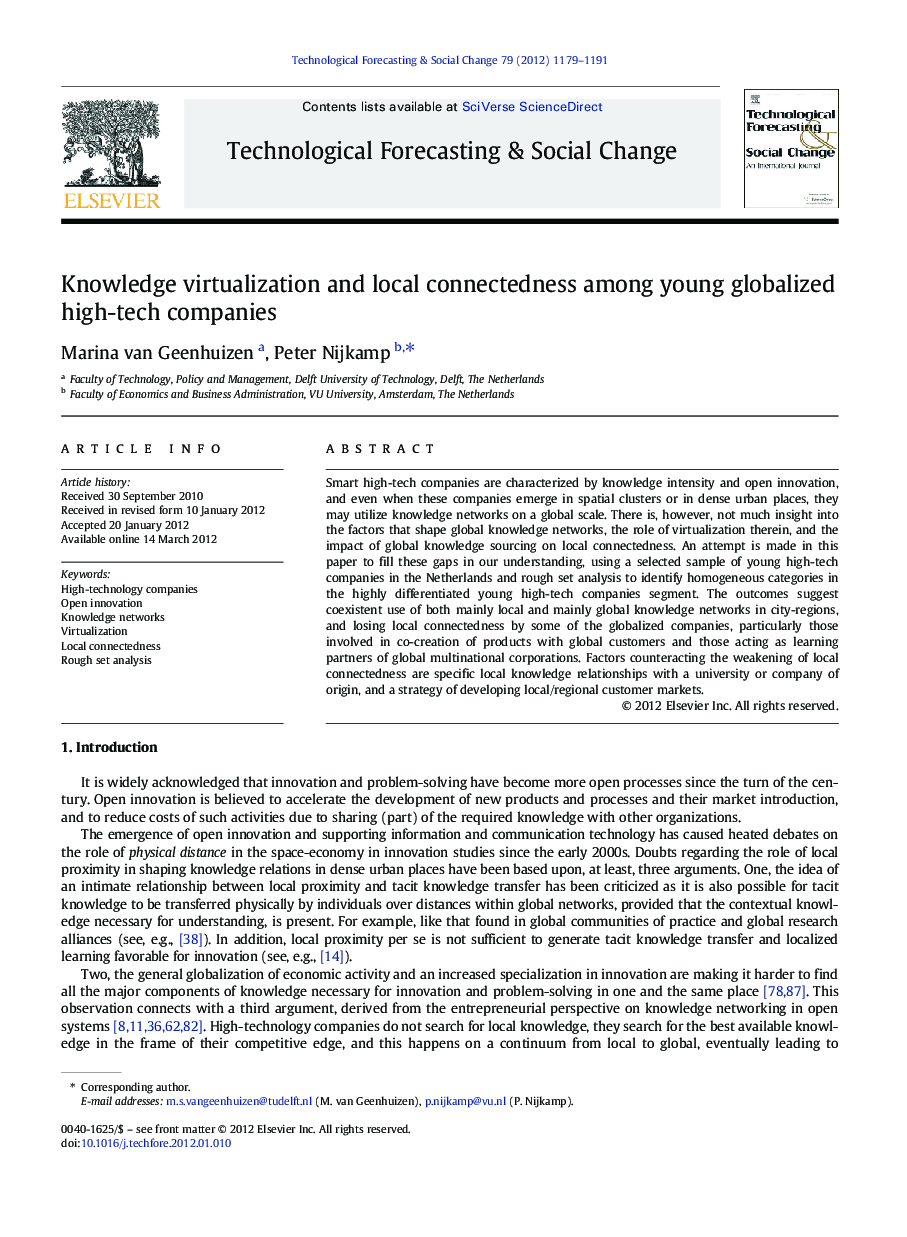| Article ID | Journal | Published Year | Pages | File Type |
|---|---|---|---|---|
| 896664 | Technological Forecasting and Social Change | 2012 | 13 Pages |
Smart high-tech companies are characterized by knowledge intensity and open innovation, and even when these companies emerge in spatial clusters or in dense urban places, they may utilize knowledge networks on a global scale. There is, however, not much insight into the factors that shape global knowledge networks, the role of virtualization therein, and the impact of global knowledge sourcing on local connectedness. An attempt is made in this paper to fill these gaps in our understanding, using a selected sample of young high-tech companies in the Netherlands and rough set analysis to identify homogeneous categories in the highly differentiated young high-tech companies segment. The outcomes suggest coexistent use of both mainly local and mainly global knowledge networks in city-regions, and losing local connectedness by some of the globalized companies, particularly those involved in co-creation of products with global customers and those acting as learning partners of global multinational corporations. Factors counteracting the weakening of local connectedness are specific local knowledge relationships with a university or company of origin, and a strategy of developing local/regional customer markets.
► This paper provides insight into the factors that shape global knowledge networks. ► The outcomes suggest coexistent use of both local and global knowledge networks in city regions. ► Various globalized companies are losing local connectedness.
